Document Author
Year Published
Topic
- (-) Remove Courts filter Courts
- 100% Access to Justice (6) Apply 100% Access to Justice filter
- Self-Help Centers (5) Apply Self-Help Centers filter
- Legal Aid (4) Apply Legal Aid filter
- Justice Tech Entrepreneurs (3) Apply Justice Tech Entrepreneurs filter
- Trial Court Self-Help (3) Apply Trial Court Self-Help filter
- Attorney Ethics (2) Apply Attorney Ethics filter
- Ethics Education (2) Apply Ethics Education filter
- Linking a Self-Help Center to Other Services (2) Apply Linking a Self-Help Center to Other Services filter
- Presentations (2) Apply Presentations filter
- Private Bar (2) Apply Private Bar filter
- Reports (2) Apply Reports filter
- Reports, Evaluations, Best Practices, Surveys (2) Apply Reports, Evaluations, Best Practices, Surveys filter
- Research (2) Apply Research filter
- Strategic Planning (2) Apply Strategic Planning filter
- Technology (2) Apply Technology filter
- Unbundling (2) Apply Unbundling filter
- Webinars (2) Apply Webinars filter
- Working Groups (2) Apply Working Groups filter
- Administrative Agencies (1) Apply Administrative Agencies filter
- Best Practices for Self-Help Centers (1) Apply Best Practices for Self-Help Centers filter
- Clerk, Self-Help Center Staff, and Librarian Ethics (1) Apply Clerk, Self-Help Center Staff, and Librarian Ethics filter
- Consumer Adoption (1) Apply Consumer Adoption filter
- Forms (1) Apply Forms filter
- Forms (1) Apply Forms filter
- Funding (1) Apply Funding filter
- Funding Strategies (1) Apply Funding Strategies filter
- Impact of Self-Represented Litigant Innovations on Cost and Efficiency (1) Apply Impact of Self-Represented Litigant Innovations on Cost and Efficiency filter
- Libraries (1) Apply Libraries filter
- Plain Language (1) Apply Plain Language filter
- Plain Language & LEP (1) Apply Plain Language & LEP filter
- Regulatory Concerns (1) Apply Regulatory Concerns filter
- Remote (1) Apply Remote filter
- Scaling in Court Systems (1) Apply Scaling in Court Systems filter
- Triage (1) Apply Triage filter
- Triage & Service Portal (1) Apply Triage & Service Portal filter
State
Tags
Post date
Search results
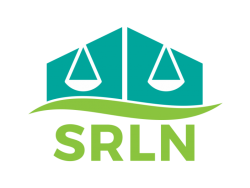
SRLN Brief: Examples of Legal Aid On-Line Intake and Triage Projects (SRLN 2016)
Over the years, legal aid programs developed complex intake protocols and decision trees to help manage their crushing caseload. Initially, these screening tools were simply paper documents that intake staff could use. Then, as telephone hotlines develope ...
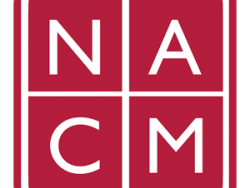
Webinar: How to Incorporate Plain Language into Court Forms, Websites, and Other Materials (NACM 2017)
The National Association for Court Management (nacmnet.org), in partnership with the Self-represented Litigation Network (SRLN), invites you to participate in its third webinar of 2017 on November 29, 2017 at 2:00 p.m. EST. Plain language is recognized ...
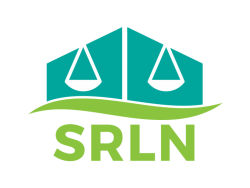
Resource: Title IV-D Funding Resource Guide (SRLN 2014, revised 2017)
Many state court systems and individual courts take advantage of federal funding under Title IV-D of the Social Security Act to obtain reimbursement for the costs of adjudicating child support and paternity matters when hearings are handled by persons oth ...
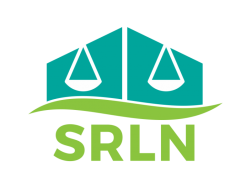
SRLN Brief: Rule 6.5- A Powerful Tool to Diversify Pro Bono and Transform Court Services (SRLN 2015)
Ethics rule 6.5 is a powerful tool to diversify pro bono programs and to transform court services because it allows unbundled lawyers to perform real time services in court-annexed programs without the onerous clerical burdens and limitations under the tr ...
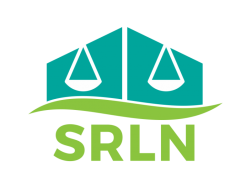
SRLN Brief: Integrating Unbundling into Self-Help Services (SRLN 2015)
The states vary tremendously on how they may have integrated unbundling into their service delivery systems. Unbundling is a critical link to devloping a local ecosystem that supports 100% access to justice, and therefore should be a priority area for dev ...
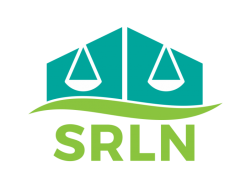
Resource: Resource Guide on Serving Self-Represented Litigants Remotely (SRLN 2016)
The Resource Guide provides options for courts and other entities interested in providing services to self-represented litigants using means that are not face-to-face, instead of, or in addition to, in-person alternatives such as walk-in services, worksho ...